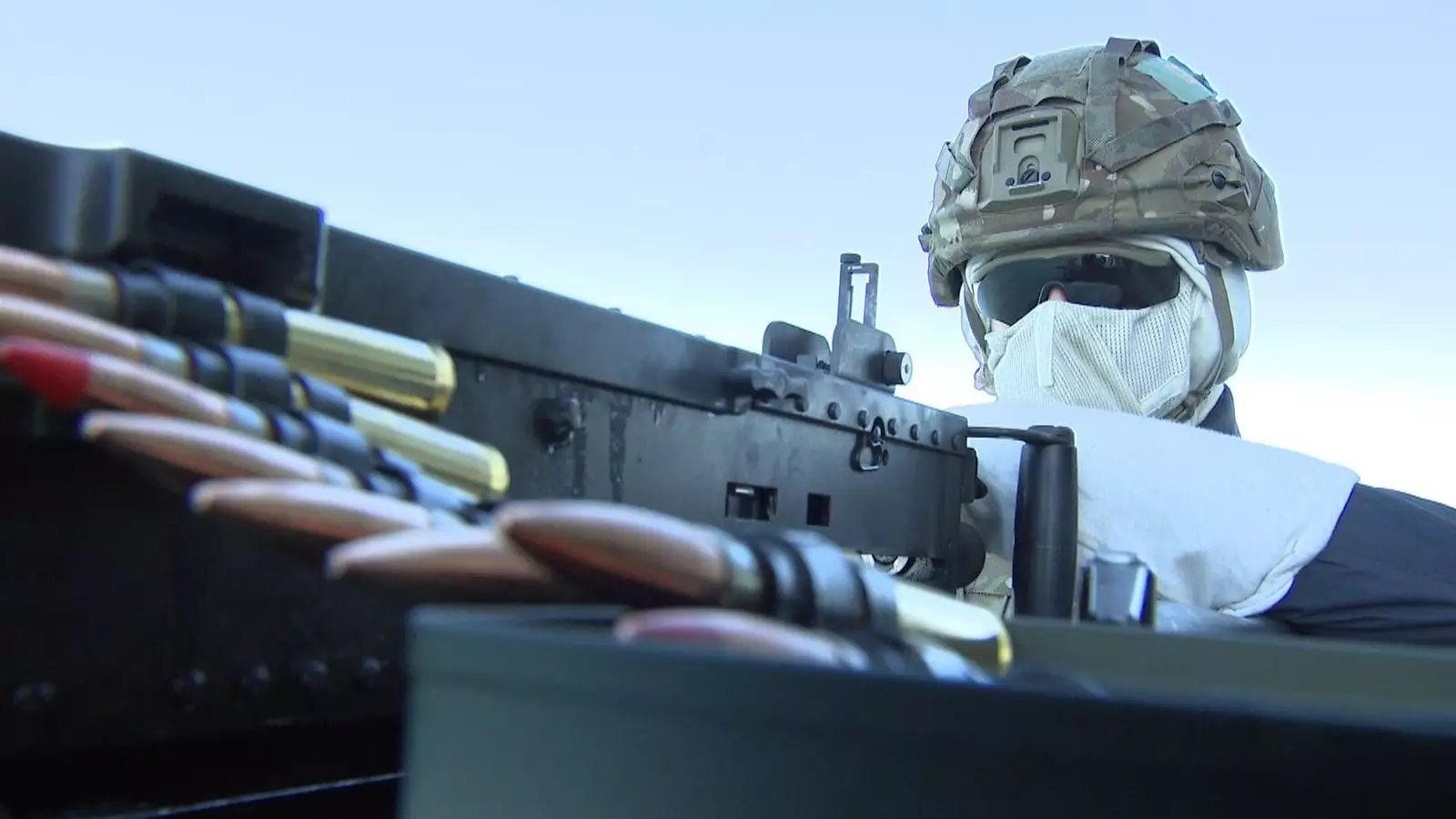“Action stations!” A command that conjures images of valor and preparedness. As the crew of HMS Dauntless, a Type 45 destroyer of the Royal Navy, braced for simulated threats off the Welsh coast, one couldn’t help but reflect on the complexities that riddled this ostensible show of strength. The scene, marked by the firing of live rounds at incoming drones and uncrewed vessels, not only highlights the UK’s commitment to military readiness but also raises a troubling question: Is this preparedness sufficient in an increasingly hostile and complex geopolitical landscape?
The United Kingdom’s military posture towards an impending deployment in Asia, particularly within potentially treacherous territories, is compelling yet unnervingly precarious. The armed forces are clearly bracing for real confrontations—interaction with Iranian-backed Houthi rebels in Yemen, for instance. But amidst this preparation, there remains a palpable tension. The specter of long-standing global conflicts has re-sparked, with the UK finding itself not merely a spectator but a participant in international power struggles.
Under Pressure: The Strain of Defense Cuts
Undoubtedly, the show of force represented by the Dauntless is an impressive spectacle. However, let us not gloss over the finite nature of the Royal Navy’s capabilities after years of biting austerity measures. While the government has pledged to ramp up defense spending to 2.5% of GDP by 2027, many in the defense community echo concerns about the inadequacy of this increase. Such gradual steps may leave the UK ill-equipped against modern threats. The desperate race against emerging technologies like drone warfare brings to light not merely a need for advanced armament, but a cry for a holistic reassessment of national defense strategy.
Luke Pollard, the armed forces minister, may be confident about the ship’s preparedness—after all, what politician would publicly doubt the capabilities of their military? But still, he speaks from a platform of promises rather than substantive reform. The assertion that the UK possesses “formidable capabilities to defend ourselves” rings hollow when juxtaposed with the grim reality of funding shortages and dwindling resources. Confidence in military fronts can only carry one so far; ultimately, decisions are necessitated by material realities, and the UK’s contemporary situation may leave its naval forces caught in a perilous bind.
The Dilemma of Diplomatic Engagements
As tensions burgeon between the U.S. and Iran, the question arises: to what extent should the UK entangle itself in this geopolitical web? Pollard’s vague remarks about the “options” available through naval power feel more like technocratic jargon than actionable insight. While naval power indeed provides diplomatic leverage, it also risks drawing the UK into conflicts that benefit neither its own national interests nor those of international stability. Should Britain’s warships be diverted to support U.S. military action, what would that say about the sovereignty of UK foreign policy? Entreaties for unity within the Anglosphere may overlook the nuanced reality that military engagements often blur the lines of ethical governance and lead to unintended consequences.
Moreover, the rhetoric around deploying advanced technologies—be it long-range missiles or drones—does little to mask the need for a coherent foreign strategy. Instead of simply arming up, it is essential that the UK engages in thoughtful diplomatic strategies that prioritize dialogue over combat. With allies recognizing that warfare often feeds into a cycle of destruction, Britain must take heed: escalation often yields more escalation, diminishing its standing on the global stage.
Martial Spectacles vs. Genuine Preparedness
As observers witness the display of firepower aboard HMS Dauntless—Phalanx cannons firing with ruthless precision—we are again left grappling with the uncomfortable juxtaposition of martial might against the backdrop of institutional fragility. The vessels of a once-mighty navy have become symbols of constrained capability, underscoring the necessity for introspection regarding the definition of “military strength.”
While it is vital to appear robust and resolute—as the Dauntless exercises clearly aim to show—the deeper narrative must explore the evolving role of military tradition within a modern liberal context. We must ask ourselves: How do we maintain the essence of national security without surrendering to the hubris that often accompanies military prowess? Building a formidable defense shouldn’t rest solely on spectacular drills but should encompass a balanced approach to diplomacy, readiness, and economic sustainability. Without this, the future remains clouded in uncertainty, and the sound of “action stations” echoes as a clarion call for vigilance rather than an affirmation of true readiness.

